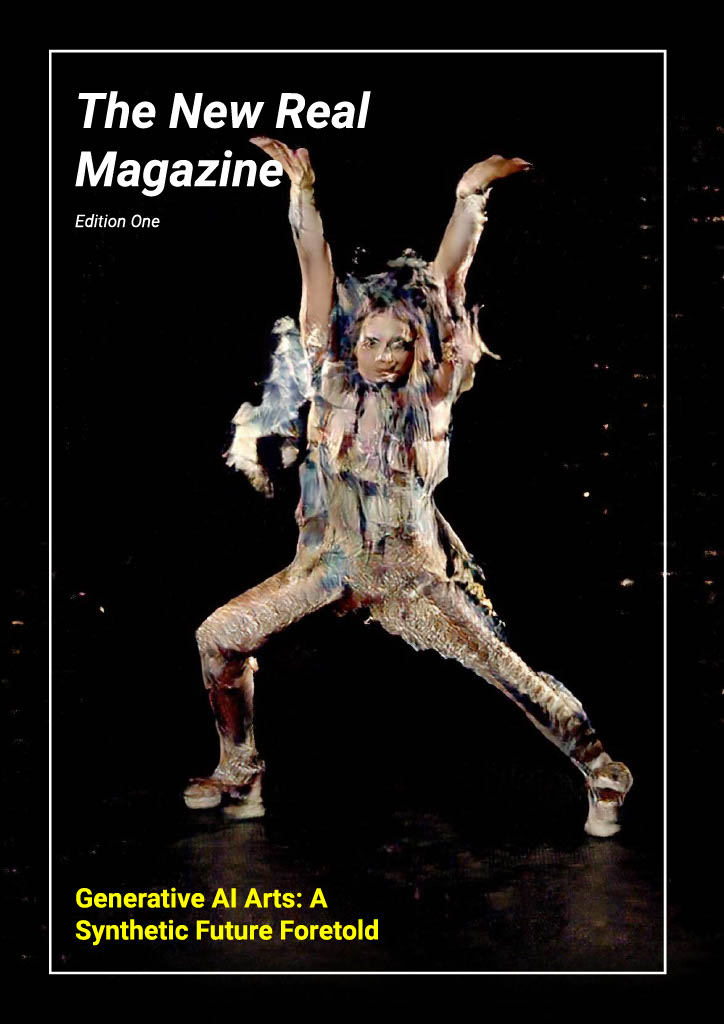A manifesto for Intelligent Experiences
DOI:
https://doi.org/10.2218/newreal.9248Abstract
Let's look beyond the impressive capabilities of current AI tools, to envision 'intelligent experiences' that can surprise and delight us, are culturally enriching, and are inclusive, fair and environmentally sound.
Intelligent experiences are encounters with creative works infused with new and emerging technologies. They encompass sensory, emotional and intellectual engagement with various interfaces and artifacts powered by machine learning models.
These experiences are where humans meaningfully engage with machine learning's predictive capabilities. They manifest the outputs of machine logic in forms that humans can understand and interact with.
Crucially, intelligent experiences foster serendipitous, unexpected interactions rather than trying to replicate interactions learned from the past. This goes beyond efficiency, or mimicking the works of human artists. Intelligent experiences are celebrations of diverse interpretations and interactions, and mediators of constructive discussions rather than heated exchange. They provoke us to search for meaning and come to new interpretations of cultural works and ultimately of ourselves.
The arts, like any other field, have a responsibility to use technologies responsibly, so we call for intelligent experiences to be not only delightful and enriching, but also socially and environmentally just. They need to express a multiplicity of data rights and ownership, and acknowledge and reward effortful human creative practice.
For this to work, we need to ask questions of AI itself, and consider how the technology needs to evolve to make a lasting impact on human creativity. This vision for intelligent experiences will require AI to become more subjective, playful, able to deal with ambiguity, open to failure, improvised, negotiated, and being open to critique from those who engage with it. We believe intelligent experiences can help to radically change how we think about AI design, moving beyond the current paradigm of learning patterns from large amounts of data, to embrace human traits such as bias, disagreement, and uncertainty as a signal with creative potential rather than noise that needs to be removed.
Downloads
Downloads
Published
Issue
Section
License
Copyright (c) 2024 Drew Hemment, Elena Simperl, Mark Sandler, Helen Kennedy, Steve Benford, Sunil Manghani

This work is licensed under a Creative Commons Attribution 4.0 International License.




